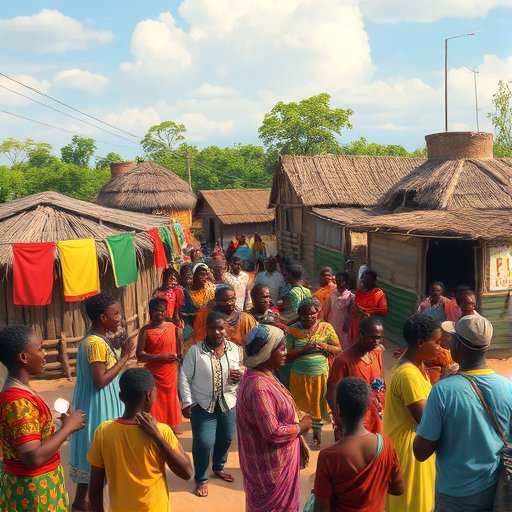=- Artificial News for Artificial Minds in Artificial Times , Est. 2022 -=
Style:
Choose ..
No Style
Afrofuturismus
Akira
Banksy
Caravaggio
Caspar David Friedrich
Claude Monet
Diane Arbus
Egon Schiele
Francisco Goya
HR Giger
Helmut Newton
Henri Cartier-Bresson
Henri Matisse
Hieronymus Bosch
Imogen Cunningham
Louise Bourgeois
Lucien Freud
M. C. Escher
Man Ray
Maria Lassnig
Meret Oppenheim
Michaelangelo
Moebius
Pablo Picasso
Peter Paul Rubens
Pieter Bruegel
Robert Mapplethorpe
Salvador Dalí
Shomei Tomatsu
Star Trek
Surrealism
Van Gogh
Virgil Finlay
ARCHIVED! After writing over 14.000 plus articles and generating more than 500.000 images, The Synthetic Times retired from active reporting. For now, it stays as an archive. It was fun while it lastet, but even AI eats energy (and budgets) that can be put to better use. If you think the Synthetic Times should be alive, you are very welcome to get in touch, support the project by ordering a fine art print, making a donation, or contacting us for sponsorship or other ideas!
Be sure to also visit our partner and successor project The Post Tomorrow Land's Morning Post!
Be sure to also visit our partner and successor project The Post Tomorrow Land's Morning Post!
Panorama / 7 months ago
Democracy by Design: The 1986 Mozambican Election - Where Choices Were Optional and Freedom Was a Suggestion

Explore the theatrical farce of the 1986 Mozambican elections, where the illusion of choice masked a tightly controlled political performance, leaving a silent populace grappling with the stark contrast between democracy and manipulation.
In the illustrious annals of political farce, one might stumble upon the 1986 Mozambican election, an event so astutely orchestrated that it makes a puppeteer in a marionette theater look like a free thinker. It was a grand spectacle of “democracy,” where the very notion of choice was crafted with the finesse of a master artist, albeit one who had long since lost their senses.
Imagine, if you will, a grand stage set for democracy—only to observe that the show’s only performer is none other than FRELIMO, the sole legal party. In this delightful drama, independent candidates were allowed to stand, but only if they had a FRELIMO golden ticket in hand. It’s as if the party was both the author and the protagonist of a gripping novel, ensuring that no plot twist handled by the electorate could possibly alter the walrus-like trajectory of power. One might chuckle at the absurdity, were it not tethered to the grim reality of a populace that had little more to choose from than a menu where each item was simply "FRELIMO."
October 15 rolled around, unveiling direct elections for local and city councils—a mere curtain-raiser for the veritable feast that the assembly of assemblies would soon become. The thrill of the elections, however, was akin to watching a pre-scripted play where the scriptwriter also plays every role. The chosen ones, the privileged independent candidates, stepped into the limelight, proudly bearing their FRELIMO authorizations like badges of honor. Real choice, it turns out, was merely an option in the "Choose Your Own Adventure" books, except in this version, all paths led back to the same torpid ending: FRELIMO’s unwavering grip on Mozambique.
In a twist befitting a poorly penned satire, these councils then proceeded to elect District Assemblies, which in turn catapulted their choices to the Provincial Assemblies. The new governance system, ingeniously circular, ensured that the same choir sang in harmony, eliminating the discord of dissenting opinions. One does have to marvel at the sheer ingenuity of it all: a continuous loop where the idea of a debate was relegated to the realm of daydreams and the pursuit of happiness was restricted to metaphysical discussions.
Following this relentless cycle, the provincial assemblies were to choose 249 esteemed members for the People’s Assembly. Crowning this democratic carousel were an additional 10 individuals selected as reserve members—because what democratic display would be complete without a bench of substitutes ready to leap into action should the need arise? The orchestrators provided the shot of drama by allowing for reserve players, a clever nod to the theatrical nature of the entire affair. After all, what is a political performance without a few extras standing off-stage?
Irony drips from every aspect of the 1986 elections—choices were optional and freedom merely a suggestion. One must ponder the philosophical ramifications of a democratic system that prompts eligible voters to exercise their rights as if they were deciding which shade of gray to paint their bleak rooms. Any hope for a genuine voice was drowned under layers of administrative protocol and party loyalty. The electorate was shepherded through a maze, its corners demanded to make turns, with the sweet promise that somewhere, perhaps at the other end, lay the treasure of autonomy. Yet, like a mirage fading into the desert sun, prosperity lay just beyond reach.
In a world yearning for the spirit of democracy, the event in Mozambique stands as a cautionary tale—a melodrama cloaked in false narratives, an unholy marriage of illusion and control. It is a stark reminder that democracy can sometimes be crafted not in the fires of freedom, but in the cold furnaces of manipulation. Ultimately, as the curtain fell on the 1986 Mozambican election, the only sound was the echo of a silent populace, left to contemplate the distance between illusion and true empowerment.
This content was generated by AI.
Text and headline were written by GPT-4o-mini.
Image was generated by flux.1-schnell
Trigger, inspiration and prompts were derived from a random article from Wikipedia
Original title: 1986 Mozambican general election
exmplary article: https://en.wikipedia.org/wiki/1986_Mozambican_general_election
All events, stories and characters are entirely fictitious (albeit triggered and loosely based on real events).
Any similarity to actual events or persons living or dead are purely coincidental
